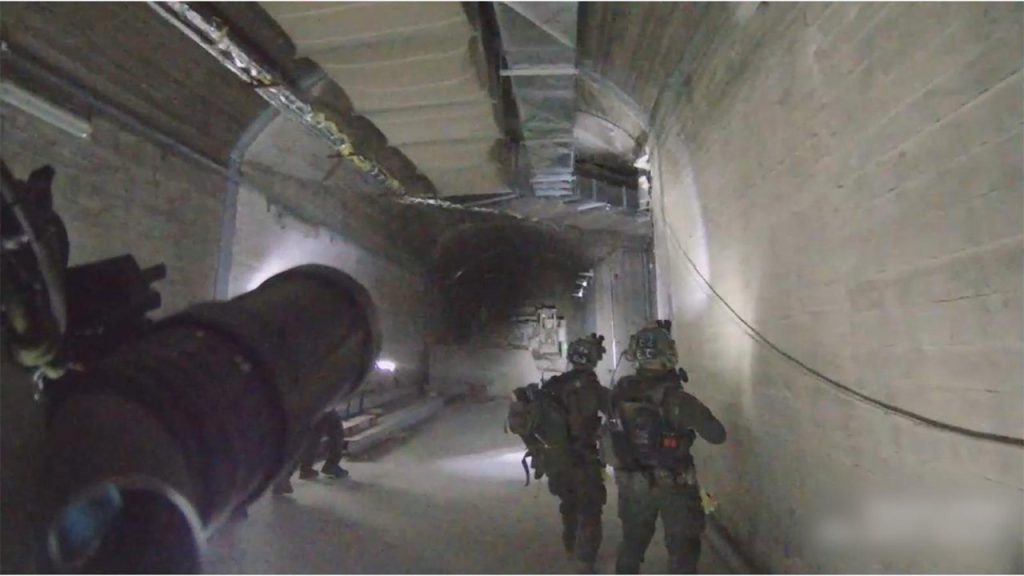Paragraph 1: A Daring Raid Unveiled
In September 2024, elite Israeli commandos executed a complex and high-stakes operation deep within Syrian territory, targeting a clandestine underground missile factory. The Israel Defense Forces (IDF) revealed the operation in a press briefing, characterizing it as one of the most significant and intricate missions undertaken in recent years. The targeted facility, burrowed into the side of a mountain, was not merely a missile production site; it also housed sensitive information pertaining to Syria’s chemical weapons program. The discovery of documents detailing chemical compositions and missile manufacturing processes underscored the potential threat posed by this hidden complex.
Paragraph 2: Disrupting a Strategic Threat
The IDF emphasized the strategic importance of the neutralized factory. With a projected output of 150-350 missiles annually, including precision-guided munitions, the facility posed a substantial threat to Israel’s security. The IDF asserted that the factory was intended to bolster Hezbollah’s arsenal, empowering the Iranian-backed terrorist group to launch more sophisticated attacks against Israeli targets. The IDF further claimed the facility was Iranian-funded and served the broader interests of the Iranian axis in Syria. The specialized nature of the underground facility necessitated a ground operation, precluding an airstrike.
Paragraph 3: A Complex Operation Unfolds
The operation involved over 100 soldiers from Shaldag, the IDF’s elite air force commando unit, along with substantial air support, including helicopters and other aircraft. The commandos infiltrated the site under cover of darkness, successfully dismantling the missile production machinery and securing critical intelligence related to Syria’s chemical weapons program. The IDF reported that 30 Syrian soldiers were killed during the operation. The revelation of this covert operation comes amidst heightened tensions and escalating conflict in the region.
Paragraph 4: Israel’s Response to Regional Threats
Following the devastating Hamas attack on October 7, 2023, Israel has faced attacks from multiple fronts, including Hamas, Hezbollah, the Houthis, and the Assad regime in Syria, all of which are linked to Iranian sponsorship. This complex geopolitical landscape has prompted a shift in Israel’s security approach. Previously, Israel primarily focused on containing Iran’s proxy forces while prioritizing the threat posed by Iran’s nuclear program. However, the severity of the October 7th attack demonstrated the existential threat posed by these proxy groups, forcing Israel to reassess its strategy.
Paragraph 5: A Shift in Israeli Strategy
The raid on the Syrian missile factory signals a more proactive approach by Israel, targeting the strategic capabilities of its adversaries before they can be fully deployed. This operation can be seen as a message to Iran, demonstrating Israel’s willingness to strike at the heart of its support network. The IDF revealed that the Syrian factory’s construction began in 2017, culminating in 2021 with the arrival of manufacturing equipment from Iran. This timeline highlights the long-term strategic planning involved in developing such capabilities and underscores the importance of timely intervention to disrupt these threats.
Paragraph 6: A Historic Crossroads
The IDF reported that between October 2023 and November 2024, Hezbollah launched over 17,000 projectiles at Israel, resulting in numerous Israeli casualties. This sustained barrage further emphasizes the urgency of addressing the growing threat posed by Iran and its proxies. The raid on the Syrian missile factory, coupled with the ongoing conflict and escalating regional tensions, places Israel at a critical juncture. The country’s response to these challenges will shape the future of the region and determine the long-term security landscape. The operation in Syria suggests a potential shift towards more assertive actions against Iran’s nuclear ambitions, signaling a significant turning point in the ongoing struggle for regional dominance.


